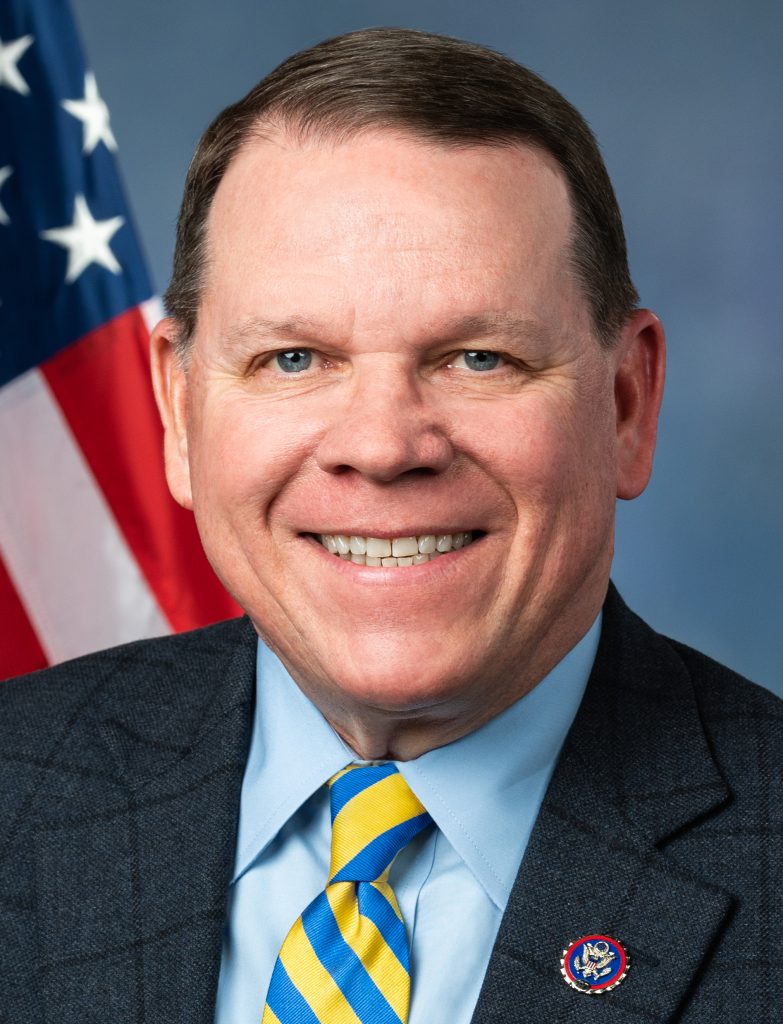It’s Time to Fix The Highway Trust Fund
By Rep. Sam Graves (R-MO) | 4/8/2024
BY REP. SAM GRAVES (R-MO)
Chairman
Committee on Transportation and Infrastructure

When the 118th Congress began, the Committee on Transportation and Infrastructure hit the ground running, and we have not slowed down. In 2023, the committee passed a -comprehensive long-term Federal Aviation Administration reauthorization, the Coast Guard Authorization Act of 2023, and the Promoting Innovation in Pipeline Efficiency and Safety (PIPES) Act of 2023. All of these bills were passed by the committee with bipartisan support, and I am proud of what we have been able to accomplish by reaching across the aisle.
While we still have work to do to get these and other essential bills onto the President’s desk this year, it’s never too soon to start preparing for upcoming priorities, such as the next major surface -transportation reauthorization bill.
The Infrastructure Investment and Jobs Act (IIJA) authorized funding for federal surface transportation programs through fiscal year 2026, and that expiration date will be here before we know it. While IIJA was an expansive bill, there were important policies left out of it that we need to consider and confront in the next reauthorization package.
One critical issue that was not addressed in IIJA—one that’s vital to our public transportation and transit systems—is the long-term solvency of the Highway Trust Fund.
The Highway Trust Fund was established in 1956 to provide a dedicated federal revenue source for constructing the Interstate System based on a user-pays principle. Subsequent acts of Congress expanded both the funding mechanisms and the number of activities eligible for funding through this account, including, since 1982, mass transit programs. However, the current method of financing the Highway Trust Fund through federal fuel taxes and heavy-truck-related fees no longer suffices. There are various reasons for this: federal fuel taxes have not been raised since 1993, fuel efficiency continues to increase, and inflationary forces have further undermined the buying power of Trust Fund dollars.
One particularly important issue is the growing number of vehicles that are not paying into the transportation system through the gas tax. Electric vehicles, which the federal government has subsidized, do not contribute to the Trust Fund through the gas tax. This unfairly and directly contradicts the user-pays principle upon which the Trust Fund is based. Users of the transportation system should help pay for the very system they use.
Trust Fund outlays first began exceeding revenue deposits more than 20 years ago. Since 2008, Congress has transferred $275 billion into the Trust Fund to ensure it could continue to pay its obligations. This process was repeated in 2021 when IIJA transferred another $118 billion from the General Fund to ensure solvency for the duration of the legislation.
All this to say, it’s past time to address the Trust Fund’s solvency issues.
I’ve long been a proponent of replacing the gas tax with a vehicle-miles traveled (VMT) system. I believe a VMT structure is the best approach to providing long-term certainty and stability for the Highway Trust Fund and maintaining the longstanding user-pays principle. While I support a VMT solution, I recognize there are still significant challenges to making such a change.
While IIJA did not provide a solution for the Highway Trust Fund’s insolvency, it took an important first step by mandating a national VMT pilot program and a Federal System Funding Alternative Advisory Board. Following inquiries I made with Senate Environment and Public Works Committee Chairman Tom Carper, it appears the Department of Transportation is finally starting to enact these initiatives, which are intended to help us find a long-term fix.
Whether it’s a VMT system or another long-term solution, one thing is clear: continuing down the current path without a reliable funding source could -jeopardize the future of the Highway Trust Fund. This would have devastating and significant impacts for our state, local, and private-sector partners who rely on, utilize, and maintain our surface transportation systems—including the transit agencies and providers in large metropolitan areas and rural communities that deliver vital community services. It is imperative that the next surface transportation authorization addresses the Highway Trust Fund’s solvency issues, including ensuring that all users pay into the system. American workers, businesses, and families across the country rely on our surface transportation system daily. We must ensure the stability of one of our most fundamental national systems.